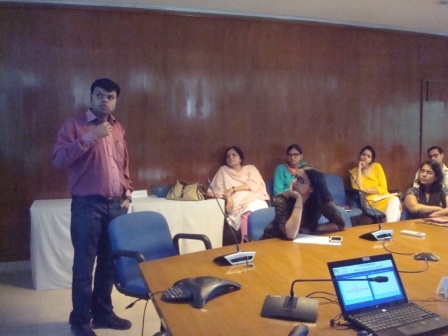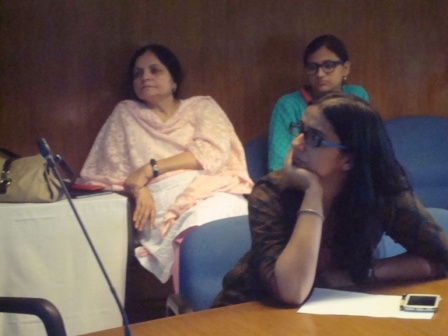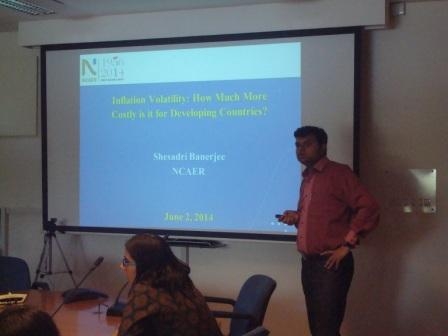Inflation Volatility: How Much More Costly is it for Developing Countries?
02 Jun 2014
Past Event

Scholars and policymakers have unanimously recognized the adverse economic and welfare consequences of inflation. However, relatively less attention is given to inflation volatility and its consequences. Inflation episodes are often more volatile (i.e. inflation fluctuates a lot) in emerging market and developing economies (EMDEs) as compared to advanced countries. This stylized fact raises the question of how costly is it for the EMDEs, such as India, when they suffer such greater volatility of inflation. At this seminar , Shesadri , Associate Fellow, NCAER presented his paper that evaluates the welfare consequence of high inflation volatility by measuring the resulting loss of output. It shows that developing countries incur far greater loss of GDP—nearly twice—than advanced countries as a result of the high volatility of inflation. This finding re-emphasizes the importance of inflation targeting in the monetary policy frameworks of EMDEs, not dissimilar to the recent approach adopted by the Reserve Bank of India. Rudrani Bhattacharya, Assistant Professor, National Institute of Public Finance and Policy as the discussant of this seminar, provided valuable inputs. Shesadri will also be presenting this paper at the forthcoming thirteenth Annual EEFS Conference to be held in Thessaloniki, Greece.










